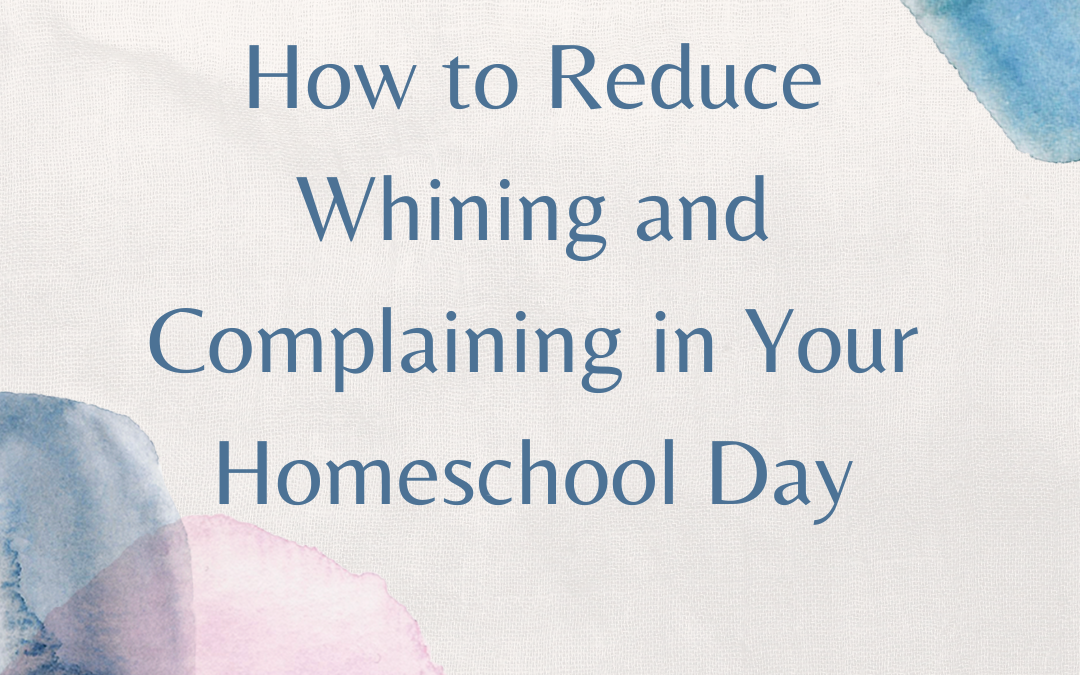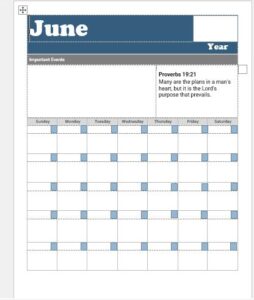“I hate math!”
“Why do we have to do so much writing?”
“Will we ever be done with school?”
Does this sound familiar? As homeschoolers, our children feel a bit too comfortable expressing their complaints at times, don’t they? When teacher is mom or dad, it’s easier to voice opinions that would be kept to themselves in a public-school setting.
It can be discouraging when kids complain after we’ve worked hard to prepare interesting information to teach them. In fact, I see parents give up on homeschooling too soon because they get so discouraged by the complaining and arguing.
But the reality is, these moments of grumbling can be seen as opportunities.
First, they offer the opportunity to work on building godly character! This is one of the benefits of homeschooling, right? We see the good, the bad, and the ugly in our children (and in ourselves sometimes too), and we have the time to help change some of the bad and the ugly by focusing on building godly character.
Secondly, we can build a deeper relationship with our children as we listen to their needs and try to help them enjoy learning more instead of grumbling.
Ideas to help reduce whining and complaining:
Investigate the root cause of the grumbling
- Ask your children what they like and dislike about school and why. Allowing them to express their opinion can help alleviate frustration. Listen to what they ask, and if doable, implement it.
- One mom said all her son requested was to add a break between math and language arts, and when she did that, he stopped complaining!
- If your child expresses that their schoolwork is too hard or too much, re-evaluate to be sure they’re capable of the work.
Focus on building godly character
- Share God’s perspective on complaining. It’s okay to make requests, but a grumbling attitude is not what God desires. Focus on changing heart attitudes rather than just behavior. You could read and memorize verses together related to grumbling.
“Do all things without complaining or arguments.” Philippians 2:14
- Check out this blog post by Intoxicated on Life for more verses to include in your study.
- Try this rubber band trick to help everyone recognize how often they complain . (It may be eye opening for you regarding your own habits!) Post by Kristin Welch
- Spend a month focusing on building an attitude of gratitude. Here’s a blogpost to help you focus on gratefulness with your children.
- Growing the Fruit of the Spirit A Bible-based Unit Study has lessons and hands-on learning to help your children grow in love, joy, peace, patience, kindness, goodness, faithfulness, gentleness, and self-control. Complaining will lessen as the Holy Spirit develops the fruit of the Spirit in your children’s lives.
Develop motivation to learn
- I recommend this excellent book, Motivate Your Child by Scott Turansky. It’s Biblically based and gives real life scenarios with excellent ideas for application.
- Implement interest-based learning. It focuses on your child’s interests. If your child loves horses, provide applicable resources on that topic. Adapt curriculum-based assignments to include their interest. They’re developing reading and writing skills while studying something they love.
- Do a learning style assessment to understand how your child likes to learn. For example, our son Jon was a wiggly, social child who preferred hands-on learning and field trips over workbooks and textbooks. Sometimes you need to be creative to help your child truly enjoy learning. Download this free learning style assessment with teaching tips.
- Add in games for learning. Check out my recommended page under ‘Games’ for ideas. Check out my blog posts on the benefits of games
- Consider setting up a reward system. Not bribing, rather finding things that will motivate them. Some children, especially those with learning disabilities like ADHD, will benefit from a simple reward system. Use stickers to reward days with no complaints. When they get five stickers, they get an inexpensive reward.
Most importantly, pray for guidance from the Lord on how to reduce complaining and help your children grow in thankfulness. He is faithful to help us when we ask Him.
“Trust in the Lord with all your heart, in all your ways acknowledge Him and He will direct your paths.” Proverbs 3.5-6
I pray these ideas will help you and your family. I’d love to hear any ideas from you that have worked as well. Please share in the comments.









Beautifully written, included so much information to help families delve into creating a more positive Christian home environment.
Thank you Lynne, I pray it will encourage and help parents.